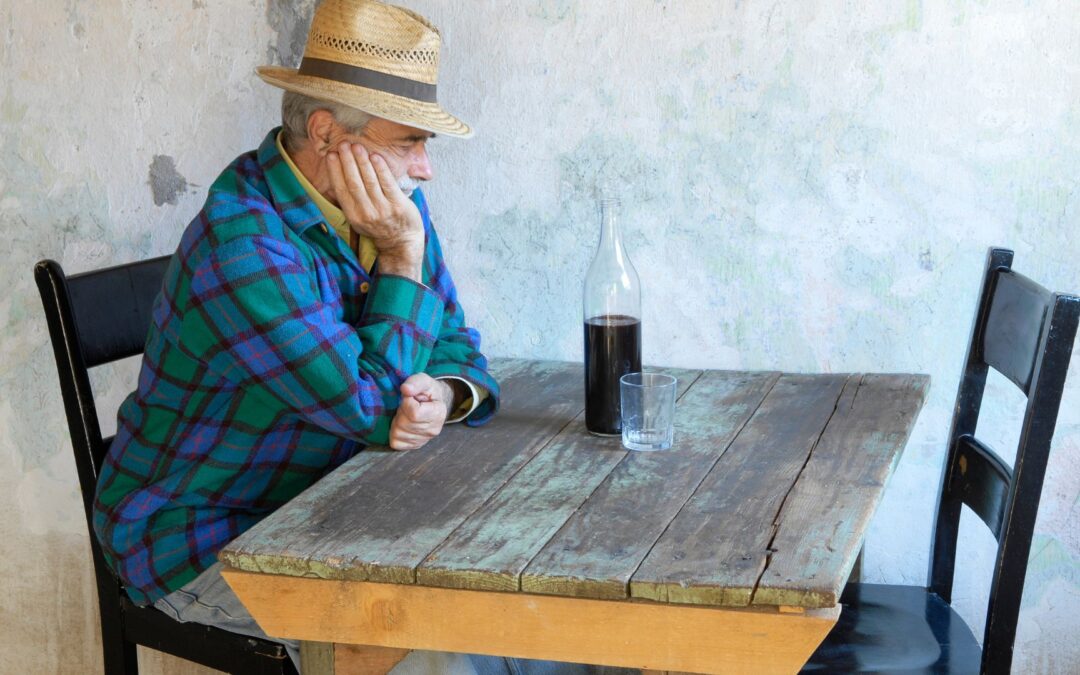Loneliness is an epidemic – one that has spread to the far reaches of the globe. No country is immune and although it can, and does, affect people of all ages, this ‘disease’ is prevalent amongst retirees. Longevity isn’t helping the situation. It stands to reason that the older we get, the more likely we are to have lost partners, loved ones, and friends. Growing old means we often become less mobile, more cautious, and less confident – together it’s a recipe for social withdrawal.
The cost of loneliness
Loneliness affects the mind, but more than that, it affects the body too. It’s linked to heart attacks, dementia, strokes, and suicide. It’s as deadly as smoking 15 cigarettes a day, and more lethal than having six alcoholic drinks a day, according to the surgeon general of the United States, Dr Vivek Murthy. We think obesity is deadly, but loneliness is more so – and yet until recently, this epidemic wasn’t taken seriously, or solutions found. This makes no sense at all when we consider the pressure on global health services, the financial strain they are under. Combat loneliness and instantly we help people live better retirements and more healthy lives.
Social creatures
As humans we have evolved to be social creatures and yet, wealth and development has driven us towards solitude. We have stopped living with extended families, eating family meals around the table, and started to socialize more on social media, than in real life. Of course, I am generalizing here. It’s not the case for everyone, but to emphasize my point let’s (for a brief moment) take a trip to the Mediterranean where people generally live longer, healthier, and happier lives. There, they still live in big family groups, social gatherings are what life is all about, (I doubt manty retirees are on Facebook), nature is important, and life is simple. There’s a lesson to be learned, of that, I’m sure.
And that lesson is this…
If we no longer ‘live’ together, if families ‘pull apart’, who loses out? Elders of course. Children still socialize with classmates, playmates, and friends; their parents lead increasingly busy lives filled with social interactions; but in this crazy, mad world, Nana and Grandad now only get a look in once a week – and that’s if they’re lucky.
What’s the answer?
Loneliness is endemic and as such, it’s not something we can tackle alone or overnight. Britain seems to be leading the way here, having appointed a minister for loneliness back in 2018, tasking them with three main aims:
- To reduce the stigma around loneliness by building the national (and global) conversation.
- To make loneliness a consideration in policy making so that change is long-lasting.
- To provide evidence about the prevalence of loneliness in society and what can be done to help.
Japan too has appointed a minister in a similar post, in Sweden there’s a social affairs minister tasked with this job, and pressure is building on governments in Australia, the United States, and countries across the world to follow suit.
A simple solution
One thing the UK government has focused on, in its bid to combat loneliness, is volunteering. Now I don’t wish to blow my own trumpet here, but I’ve long been saying how important this is for people approaching or in retirement. Volunteering brings people together. It binds communities, and it helps not only the receiver, but also the giver.
To emphasise my point, let me take you now to Acton, a working-class neighbourhood in London. Here there’s a weekly lunch club where most of the invitees are immigrants who struggle with English. This is their chance to get out of the house and make friends. It’s a huge not-for-profit success story, even more so when you consider the numbers of volunteers – many of them retired – who come to help out. “I come to mix with different generations,” said Nigel Rock, a 71-year-old retiree. “I work, chat, and have a great time… I’m coming back week after week.”
Next, we’re off to the English town of Worthing, where a group of volunteers really are on a mission to end social isolation. Here, The Glamour Club is held every Saturday, and everyone is invited. Over afternoon tea, guests are treated to music, dancing, socializing, and stress-relief. They’re told to put on their most glamourous outfit, and for many this is the highlight of the week. The organisers and volunteers gain as much from this as the guests, so much so, they’re planning to create a Glamour Club in every town across the country and I for one, wish them every success.
And finally, let’s focus on your town, where I’m sure there are many similar organizations in desperate need of volunteers. If you’re in or approaching retirement, take a moment to think about giving a little of yourself, because I can guarantee that volunteering will reap huge rewards for both yourself, and the many people your generosity helps. If we all do a little, then together, we can help to rid our communities of loneliness, one person at a time. So, you see, the problem may be colossal, but the solution is anything but.
If you would like some help in defining what retirement looks like for you, please check out my online digital course, here.
- A Journey of Transformation: What’s Next for George Jerjian - February 14, 2025
- My 2024 Adventure: Around The World In 80 Days - December 1, 2023
- Change In Retirement – Embracing The Challenges - November 20, 2023
